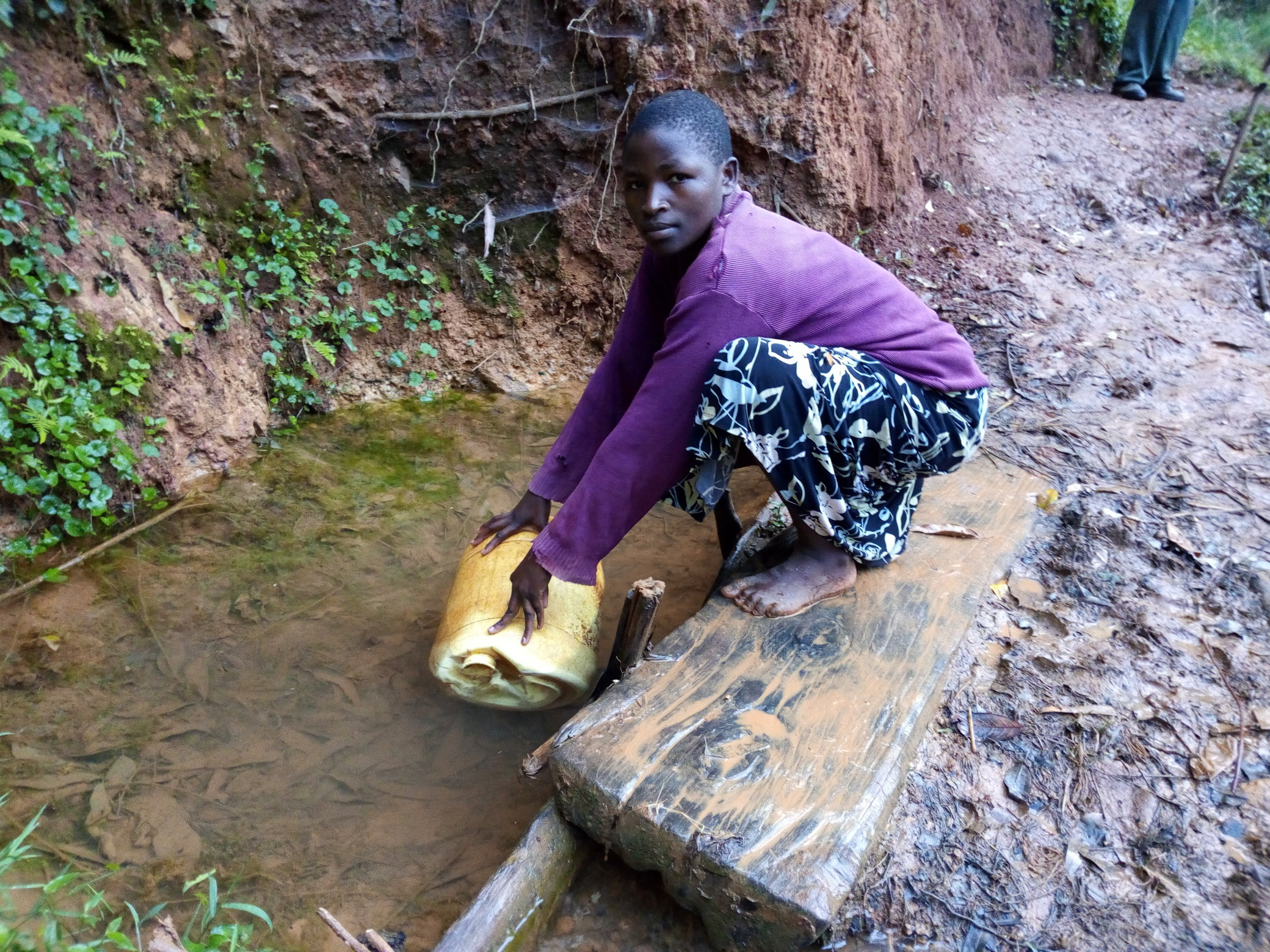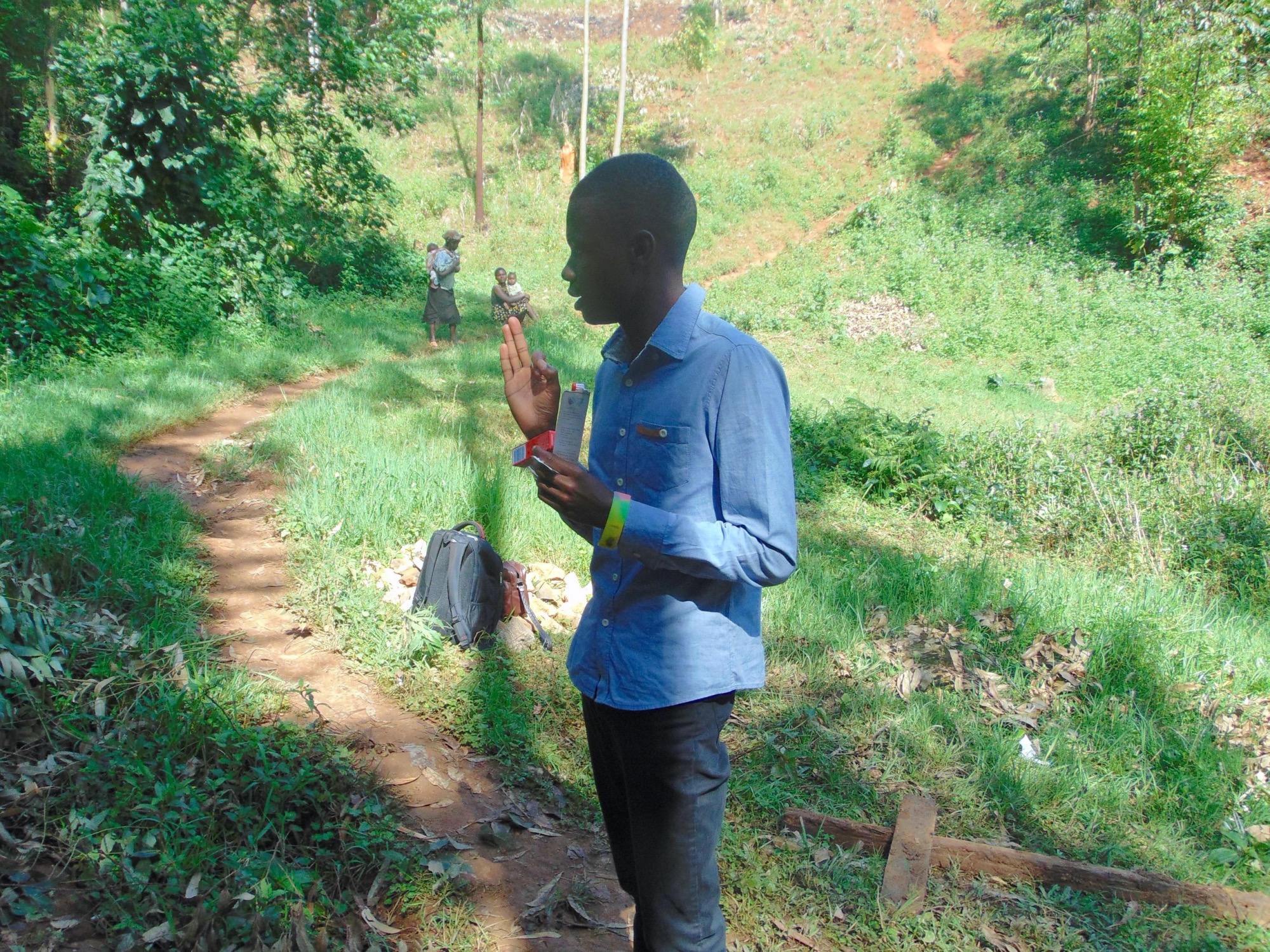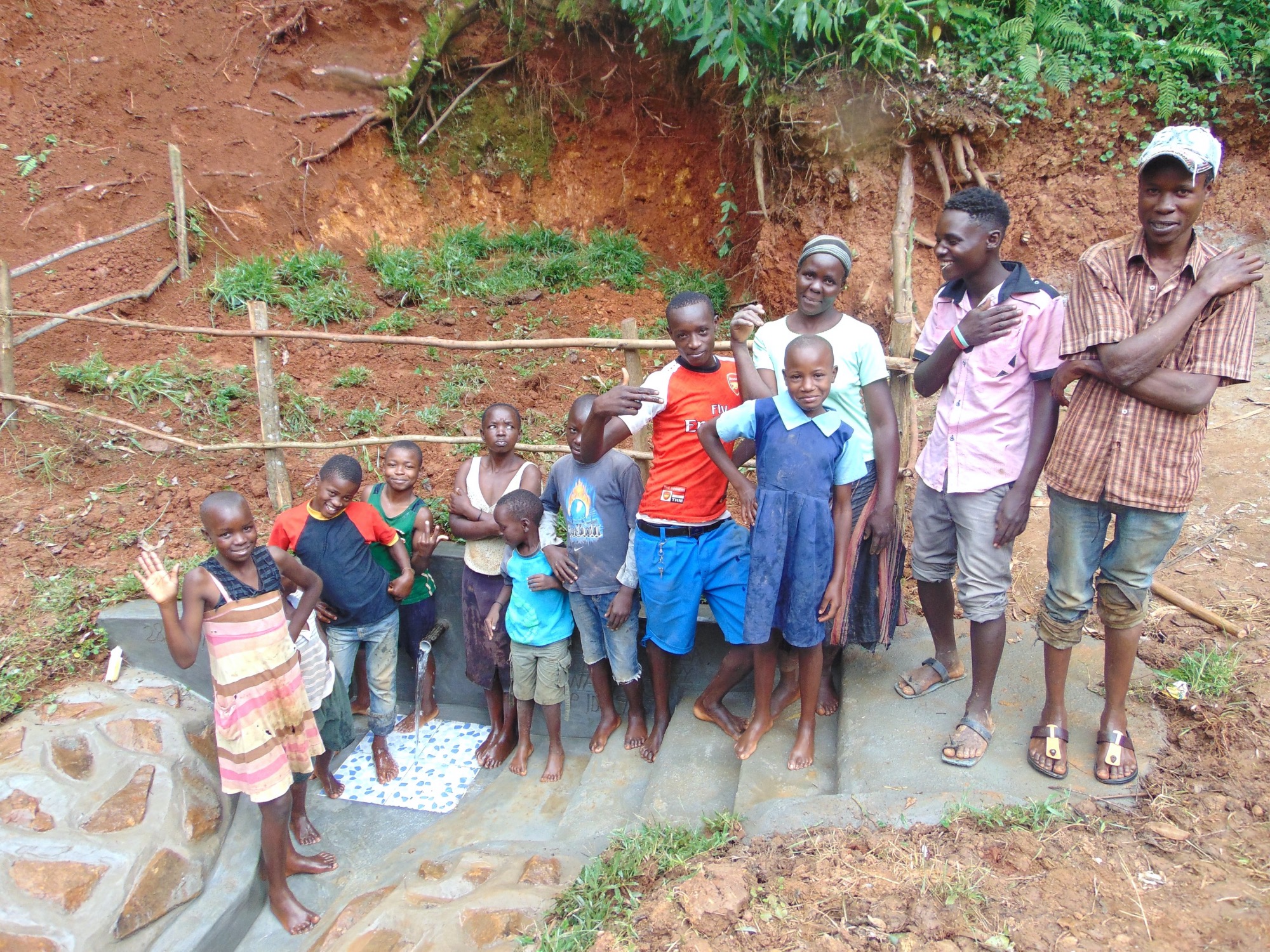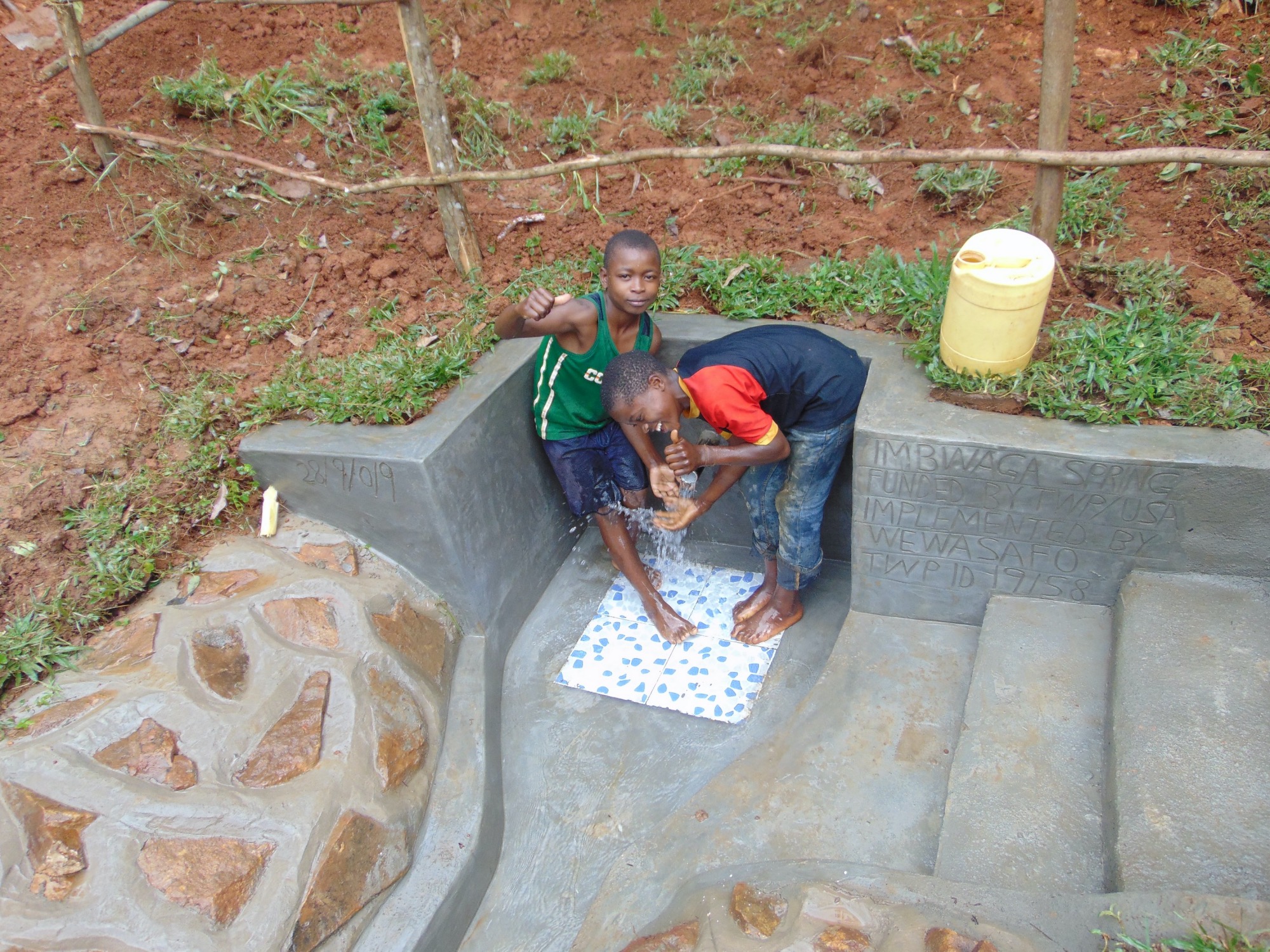Breaking “The Water Curse” One Spring at a Time
Before protection, Imbwaga Spring was believed to be cursed water. It was a small, muddy pool of water open to contamination from animals and people in the village of Bumira, Kenya. The 210 people who depend on this spring knew the water was unsafe to drink, but they could not afford to treat it. It was too expensive to use firewood for boiling the water, and other technologies like WaterGuard were financially out of the question. So many people were constantly sick from the spring water that the local health center had a waiting list for water-related disease treatments.
Still, community members had no choice but to drink it.

A woman fetches water at unprotected Imbwaga Spring
Imbwaga Spring’s contamination extended beyond the water’s edge, however. When we went to conduct our hygiene and sanitation training with community members at Imbwaga Spring while it was under construction, we noticed 2 women with small children aged 3 -5 months sitting 100 meters away from the training site. When the facilitator beckoned them to join the rest of the team, the 2 women shouted at the top of their voices, “We cannot come here at the spring, our children will be infected!”
“The water curse” infected the air around the spring, and it was thought that the area was particularly unsafe when the sun was absent. This included nighttime, cloudy days, and when the spring sat in the shade. The sun, people had heard, chased away the curse.

Foreground: Facilitator Amos leads a dental hygiene session during training; Background: 2 women with their children refused to come closer to the spring’s shade during training due to “the water curse”
The facilitator probed them about what kind of infection and they responded that their water had been discharging a bad infection called in the local language “Muyaka”. The community members believed that since the spring was unprotected, it had always discharged bad air in the form of infections and when a baby was infected, they believed no amount of treatment could cure the infection. In most cases, the child would pass on within a few hours.
The signs and symptoms included diarrhea, fever, and vomiting – some of the most common symptoms of waterborne diseases such as giardia, cholera, and typhoid, contracted not through the air but by consuming the water.
Since the curse was believed to be heightened at night, no one would approach the spring until after sunrise, no matter the cost of waking up without water. During the construction period, our artisan would wake up early and go to the spring to do some curing of the cement before he returned to his host family to take breakfast each day. On the second day when he came back from the spring, his host inquired where he came from and he stated, “From curing the spring.”
The host cautioned the artisan against going to the spring early in the morning as the curse would befall the family that was hosting him. The unskilled laborers who assisted the artisan and who lived in Bumira, on the other hand, would not come to the spring before the sun rose each day.

Community members confidently celebrate protected Imbwaga Spring, breaking “the water curse”
But on the final day of construction when the spring was completed, everyone confidently came to the spring and they started celebrating while singing that the Lord had done a great thing by sending the curse away when the spring was covered, for they believed the curse had also been buried forever. The occasion was full of pomp and circumstance, including singing and dancing.
The joy within this community was overwhelming; to them, they were celebrating freedom from diseases and from “the water curse”.

Thumbs up and smiles at the spring
“Truly, the protection of Imbwaga Spring is really a good omen in this community,” said Karen Maruti, the lead Field Officer for this project. Community members agreed.
“To me, it’s an answered prayer because women in this community feared coming down to the spring for fear of being affected by the water curse. If we had no water for making breakfast, we had to wait till the sun rose as it is believed the sun’s rays kill the curse. At times when the sun did not rise, we would stay hungry,” reflected a primary school student from the community, Maurine.
“Thanks for protecting our spring. I can now come down at any time without fear. Life will be sweet as I can finish my chores on time and go play with my friends or read,” she said.

Children play in the water at protected Imbwaga Spring
To see more photos and read about Bumira Community and the Imbwaga Spring project, click here.
Home More Like ThisTweet